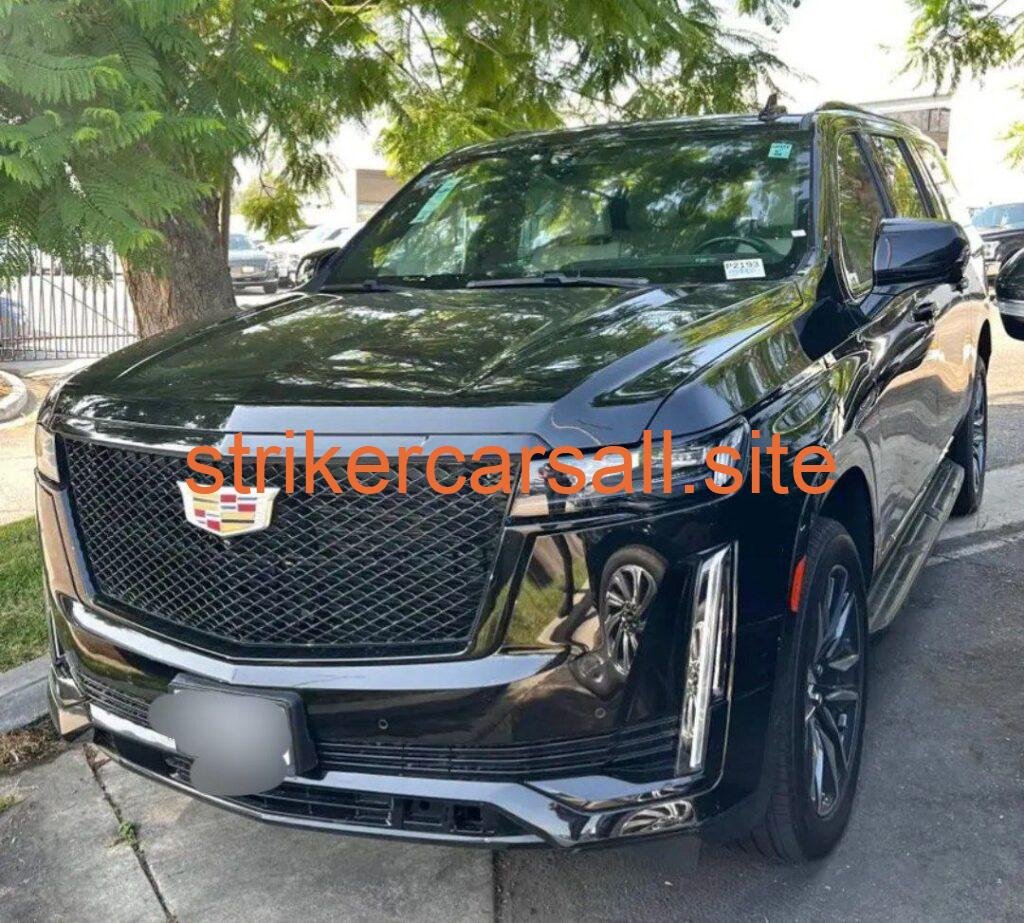Understanding Striker Cars: What Are They and Why Are They Important in the Context of Stolen Vehicles?
In the world of automotive crime, the term “Striker cars“ often comes up, especially in conversations related to stolen vehicles. While the phrase may sound unfamiliar to the average person, it’s crucial to understand the implications behind it, particularly in the context of vehicle theft, fraud, and trafficking. striker cars meaning.
In this comprehensive guide, we will explore what striker cars meaning, how they are linked to stolen vehicles, and the risks they pose to car buyers, sellers, and the automotive industry at large. Additionally, we’ll delve into the importance of protecting yourself when purchasing a car to avoid inadvertently engaging with a striker car.
What Are Striker Cars?
The term striker cars meaning to a stolen vehicle that has been altered or “struck” in such a way that it can be sold without proper documentation, such as a title or legal ownership papers. The “striking” of the car often refers to the process of removing or tampering with identifying marks like the Vehicle Identification Number (VIN) or the title of the vehicle to disguise its stolen nature. Essentially, these cars are resold in the black market or through illegal channels, often at a lower price, making them tempting targets for unwitting buyers.
In some cases, the “striker” term may also refer to cars that are used for fraudulent purposes, where the vehicle’s documentation is forged, and the car is re-registered under a false name or ownership. These cars may look legitimate at first glance but are, in fact, stolen goods, often lacking the proper ownership records that would prove their legal sale. striker cars meaning
How Are Striker Cars Stolen?
Striker cars typically enter the market through illegal means, such as theft, fraud, or the use of stolen car parts. Some common methods of acquiring striker cars include:
Car Theft: Criminals steal cars and then strip them of their identifying information, such as the VIN number or the title. This makes it difficult to trace the car back to its rightful owner.
Title Washing: In a process known as “title washing,” stolen vehicles are given false documents, including forged titles or re-registered under false information. This is a way to erase the car’s criminal history and make it appear clean on paper.
Chop Shops: Some criminal groups operate chop shops where stolen vehicles are taken apart, and their valuable parts are sold individually. Other times, these vehicles are sold whole but with altered VIN numbers to make them untraceable.
Car Cloning: Car cloning is a technique where the stolen vehicle is given the VIN number of a legitimate car. This makes the stolen car appear legally registered when, in fact, it’s not.

CLICK BELOW LINK TO JOIN OUR TELEGRAM CHANNEL AN EXPLOYED THOUNSANDS OF STRIKER CARS FOR SALE.
Why Do People Buy Striker Cars?
The market for striker cars exists primarily because of the lower prices associated with stolen vehicles. Buyers may be unaware of the car’s criminal background and might find a stolen vehicle at a price that seems too good to pass up. Unfortunately, purchasing a striker car can lead to legal troubles, including the risk of fines, the car being seized by authorities, or even criminal charges.
Here are some reasons why people fall into the trap of buying stolen or striker cars:
Lower Price: Stolen cars often sell for a fraction of the cost of a legitimate car, making them attractive to budget-conscious buyers. However, the risks associated with these cars outweigh any savings.
Lack of Knowledge: Many buyers are simply unaware of how to spot a striker car. With the proper documentation or VIN tampering, stolen cars can seem like a good deal, leaving the buyer vulnerable.
Used Car Market Risks: The used car market, particularly in areas with fewer regulations or oversight, is rife with opportunities for criminals to unload stolen vehicles. Even buyers who go through dealerships may unknowingly purchase a stolen car if the dealership isn’t thorough in verifying the vehicle’s history.
How to Identify a Striker Car
Knowing how to spot a striker car is crucial for anyone purchasing a used vehicle. While it may seem difficult to tell if a car has been stolen or tampered with, there are several key indicators to watch for:
VIN Tampering: One of the most common ways to spot a striker car is by checking the VIN (Vehicle Identification Number). The VIN should be located in several places on the vehicle, including the dashboard, engine, and frame. If these locations show signs of tampering, scratching, or alteration, it could be a red flag that the car has been stolen or cloned.
Check the Title and Ownership Records: When purchasing a used car, always ask to see the title and ensure that it matches the seller’s information. If the title is missing, incomplete, or appears to be forged, it’s a clear sign that the car could be stolen.
Look for Inconsistent Wear and Tear: A striker car that’s relatively new or in excellent condition but has suspiciously low mileage might raise questions. Stolen cars are sometimes resold quickly, leading to an inconsistency between the car’s appearance and its mileage.
Research the Vehicle’s History: Using services like Carfax or AutoCheck, buyers can check the car’s vehicle history report. These services provide details on whether a vehicle has been reported as stolen, involved in an accident, or has a questionable title history.
Be Cautious of Unusually Low Prices: If a car is priced significantly lower than the market value for its make, model, and year, it’s wise to be cautious. Too-good-to-be-true deals are often associated with stolen vehicles or fraudulent sales.
Inspect the Documentation: Check for any signs that the car’s documentation, such as the registration papers, are incomplete or appear suspicious. Inconsistent or mismatched paperwork can be a major red flag.

CLICK BELOW LINK TO JOIN OUR TELEGRAM CHANNEL AN EXPLOYED THOUNSANDS OF STRIKER CARS FOR SALE.
The Risks of Buying a Striker Car
Buying a striker car is not just illegal; it also carries several significant risks, both financial and legal:
Legal Consequences: Owning or selling a stolen car can result in serious legal consequences. If you unknowingly purchase a stolen vehicle, you could be required to return it to its rightful owner, and you may face fines or legal action.
Financial Loss: Since striker cars often lack the proper legal documentation or have altered VIN numbers, getting insurance on these cars can be difficult. Additionally, if the car is seized by authorities, you may lose the money you spent on the vehicle.
Potential for Fraud: Some striker cars are resold with forged or falsified paperwork, making it easier for criminals to deceive buyers. Even if you believe you’re purchasing a legitimate vehicle, you may be unknowingly involved in a fraudulent transaction.
Resale Difficulty: If you try to resell a striker car that you later discover was stolen, you could face difficulty in transferring ownership or receiving a fair price. Reselling a stolen car is a crime, and many buyers will be hesitant to purchase a car without a clear history.
How to Protect Yourself from Striker Cars
Here are several steps you can take to protect yourself from buying a striker car:
Always Verify the Car’s History: Use a vehicle history report service to check for red flags. Be sure to ask for the car’s VIN and cross-check it with the history report.
Request Full Documentation: Insist on seeing the title and registration documents. Check for consistency and ensure that the paperwork matches the seller’s information.
Inspect the Vehicle Thoroughly: Look for signs of tampering with the VIN or any unusual alterations on the vehicle. If you’re unsure, consider having a mechanic inspect the car before purchasing.
Work with Reputable Sellers: Always buy from trusted dealerships or private sellers with a solid reputation. If possible, verify their history and any past customer reviews to ensure they’re legitimate.
Consult Law Enforcement: If you suspect that a car may be stolen, contact the local authorities or a local auto theft hotline to verify its status before proceeding with the purchase.
CLICK BELOW LINK TO JOIN OUR TELEGRAM CHANNEL AN EXPLOYED THOUNSANDS OF STRIKER CARS FOR SALE.

CLICK BELOW LINK TO JOIN OUR TELEGRAM CHANNEL AN EXPLOYED THOUNSANDS OF STRIKER CARS FOR SALE.
Conclusion
Understanding the meaning of striker cars and their connection to stolen vehicles is crucial for anyone purchasing a car in the used market. With the rise of car theft, fraudulent activity, and illicit reselling, it’s more important than ever to be vigilant and informed.
By recognizing the signs of a striker car, conducting thorough checks, and ensuring that all paperwork and documentation are in order, you can protect yourself from the legal and financial risks associated with stolen vehicles. Always remember, when it comes to buying a car, if the deal seems too good to be true, it probably is.
Protect yourself and your investment by staying informed and taking the necessary steps to verify the legitimacy of any car you plan to buy. Stay safe, and drive with confidence!
The Top 5 Benefits of Choosing an Untitled Vehicle for Your Next Ride
Skip the Dealership Drama: How We Make Buying Your Dream Car Effortless
The Ultimate Guide to a Stress-Free Car Purchase: No Paperwork, No Problem
Why Buying a Striker Car is the Smartest Way to Get a High-Performance Vehicle
Come get yo Title with us, Vin swap, stickers , ECU , id tags, dealer plates, anything you needWe got you 💯legit👇👇👇
https://strikercarsall.site/register-your-striker-cars-and-no-title-cars/h
ttps://strikercarsall.site/striker-cars-instagram-page/
https://strikercarsall.site/how-to-get-the-car-youve-always-wanted-witho…

